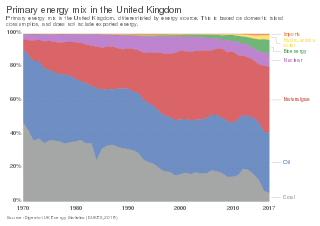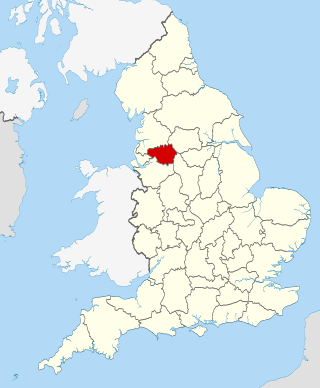Related Research Articles
The private finance initiative (PFI) was a United Kingdom government procurement policy aimed at creating "public–private partnerships" (PPPs) where private firms are contracted to complete and manage public projects. Initially launched in 1992 by Prime Minister John Major, and expanded considerably by the Blair government, PFI is part of the wider programme of privatisation and macroeconomic public policy, and presented as a means for increasing accountability and efficiency for public spending.

A public–private partnership is a long-term arrangement between a government and private sector institutions. Typically, it involves private capital financing government projects and services up-front, and then drawing revenues from taxpayers and/or users for profit over the course of the PPP contract. Public–private partnerships have been implemented in multiple countries and are primarily used for infrastructure projects. Although they are not compulsory, PPPs have been employed for building, equipping, operating and maintaining schools, hospitals, transport systems, and water and sewerage systems.
The United Kingdom's Climate Change Programme was launched in November 2000 by the British government in response to its commitment agreed at the 1992 United Nations Conference on Environment and Development (UNCED). The 2000 programme was updated in March 2006 following a review launched in September 2004.

In the United Kingdom, regional development agencies (RDAs) were nine non-departmental public bodies established for the purpose of development, primarily economic, of England's Government Office regions between 1998 and 2010. There was one RDA for each of the NUTS level 1 regions of England. Similar activities were carried out in Wales by the Welsh Government Department of Economy and Transport, in Northern Ireland by the Department of Enterprise, Trade and Investment and in Scotland by Scottish Enterprise and Highlands and Islands Enterprise.
Best Value was government policy in the United Kingdom affecting the provision of public services in England. In Wales, Best Value is known as the Wales Programme for Improvement. A statutory duty of Best Value also applies in Scotland.

The energy policy of the United Kingdom refers to the United Kingdom's efforts towards reducing energy intensity, reducing energy poverty, and maintaining energy supply reliability. The United Kingdom has had success in this, though energy intensity remains high. There is an ambitious goal to reduce carbon dioxide emissions in future years, but it is unclear whether the programmes in place are sufficient to achieve this objective. Regarding energy self-sufficiency, UK policy does not address this issue, other than to concede historic energy security is currently ceasing to exist.

Building Schools for the Future (BSF) was the name given to the British government's investment programme in secondary school buildings in England in the 2000s. Around half of the work was procured under the private finance initiative. The delivery of the programme was overseen by Partnerships for Schools (PfS), a non-departmental public body formed through a joint venture between the Department for Children, Schools and Families (DCSF), Partnerships UK and private sector partners. The programme was cancelled in 2010.

The Sheffield Energy Recovery Facility, also known as the Energy from Waste Plant, is a modern incinerator which treats Sheffield's household waste. It is notable as it not only provides electricity from the combustion of waste but also supplies heat to a local district heating scheme, making it one of the most advanced, energy efficient incineration plants in the UK. In 2004, the district heating network prevented 15,108 tonnes of CO2 from being released from buildings across the city, compared to energy derived from fossil fuels. The incinerator is a 'static asset' owned by Sheffield City Council and operated by Veolia Environmental Services under a 35 year integrated waste management contract (IWMC)/PFI contract.

The Renewable Energy and Energy Efficiency Partnership (REEEP) is a Vienna-based Quasi-International Organisation that advances markets for renewable energy and energy efficiency with a particular emphasis on the emerging markets and developing countries.
Energy Saving Trust is a British organization devoted to promoting energy efficiency, energy conservation, and the sustainable use of energy, thereby reducing carbon dioxide emissions and helping to prevent man-made climate change. It was founded in the United Kingdom as a government-sponsored initiative in 1992, following the global Earth Summit.
Financial incentives for photovoltaics are incentives offered to electricity consumers to install and operate solar-electric generating systems, also known as photovoltaics (PV).

The United States Department of Energy's State Energy Program (SEP) provides grants to states and directs funding to state energy offices from technology programs in Office of Energy Efficiency and Renewable Energy. States use grants to address their energy priorities and program funding to adopt emerging renewable energy and energy efficiency technologies. Started in 2010, the program "is the only program administered by the U.S. Department of Energy (DOE) that provides cost-shared resources directly to the states for allocation by the governor-designated State Energy Office for use in energy efficiency and clean energy innovation, development, and demonstration activities.”

The Greater Manchester Combined Authority (GMCA) is a combined authority for Greater Manchester, England. It was established on 1 April 2011 and consists of 11 members: 10 indirectly elected members, each a directly elected councillor from one of the ten metropolitan boroughs that comprise Greater Manchester, together with the directly elected Mayor of Greater Manchester. The authority derives most of its powers from the Local Government Act 2000 and Local Democracy, Economic Development and Construction Act 2009, and replaced a range of single-purpose joint boards and quangos to provide a formal administrative authority for Greater Manchester for the first time since the abolition of Greater Manchester County Council in 1986.
A green bond is a fixed-income financial instruments (bond) which is used to fund projects that have positive environmental benefits. When referring to climate change mitigation projects they are also known as climate bonds. Green bonds follow the Green Bond Principles stated by the International Capital Market Association (ICMA), and the proceeds from the issuance of which are to be used for the pre-specified types of projects. The categories of eligible green projects include for example: Renewable energy, energy efficiency, pollution prevention and control, environmentally sustainable management of living natural resources and land use, terrestrial and aquatic biodiversity, clean transportation, climate change adaptation.

Climate finance is an umbrella term for financial resources such as loans, grants, or domestic budget allocations for climate change mitigation, adaptation or resiliency. Finance can come from private and public sources. It can be channeled by various intermediaries such as multilateral development banks or other development agencies. Those agencies are particularly important for the transfer of public resources from developed to developing countries in light of UN Climate Convention obligations that developed countries have.

A green bank is a financial institution, typically public or quasi-public, that employs innovative financing techniques and market development tools in collaboration with the private sector to expedite the deployment of clean energy technologies. Green banks use public funds to leverage private investment in clean energy technologies that, despite their commercial viability, have struggled to establish a widespread presence in consumer markets. Green banks aim to reduce energy costs for ratepayers, stimulate private sector investment and economic activity, and expedite the transition to a low-carbon economy.

The Cardiff Capital Region is a city region in Wales, centred on the capital city of Wales, Cardiff, in the southeast of the country. It is a partnership between the ten local authorities of Blaenau Gwent, Bridgend, Caerphilly, Cardiff, Merthyr Tydfil, Monmouthshire, Newport, Rhondda Cynon Taf, Torfaen, and the Vale of Glamorgan, local businesses in southeast Wales and other organisations. The regional city deal is funded by the UK Government and Welsh Government. The Cardiff Capital Region includes the cities of Cardiff and Newport, and most of the South Wales Valleys, with the region being coterminous with the area defined as South East Wales.

Regional economy in Wales is centred on four regional economic boards in Wales. Each board oversees a city or growth deal, signed between 2016 and 2022, lasting 10–15 years. Two of the deals are city deals signed and proposed by their respective economic boards, and their areas are described as "city regions"; the Cardiff Capital Region and Swansea Bay City Region. Whereas in North Wales, the North Wales Economic Ambition Board negotiated a North Wales growth deal signed in 2020, and in Mid Wales, the Growing Mid Wales Partnership, led negotiations for a Mid Wales growth deal signed in 2022. The programmes are based on the City deal and Growth deal initiatives set up by the Coalition UK Government in 2012, to promote the decentralisation of the UK economy, by stimulating local economic growth.
References
- ↑ "Local Partnerships". localpartnerships.gov.uk. Local Partnerships. Retrieved 19 March 2024.
- ↑ "Our expertise - Local Partnerships". 15 May 2023. Retrieved 19 March 2024.
- ↑ "Switch2 will accelerate heat network development via Re:fit framework". BDaily. 12 June 2020.
- ↑ "Managing PFI assets and services as contracts end" (PDF). National Audit Office. 5 June 2020.